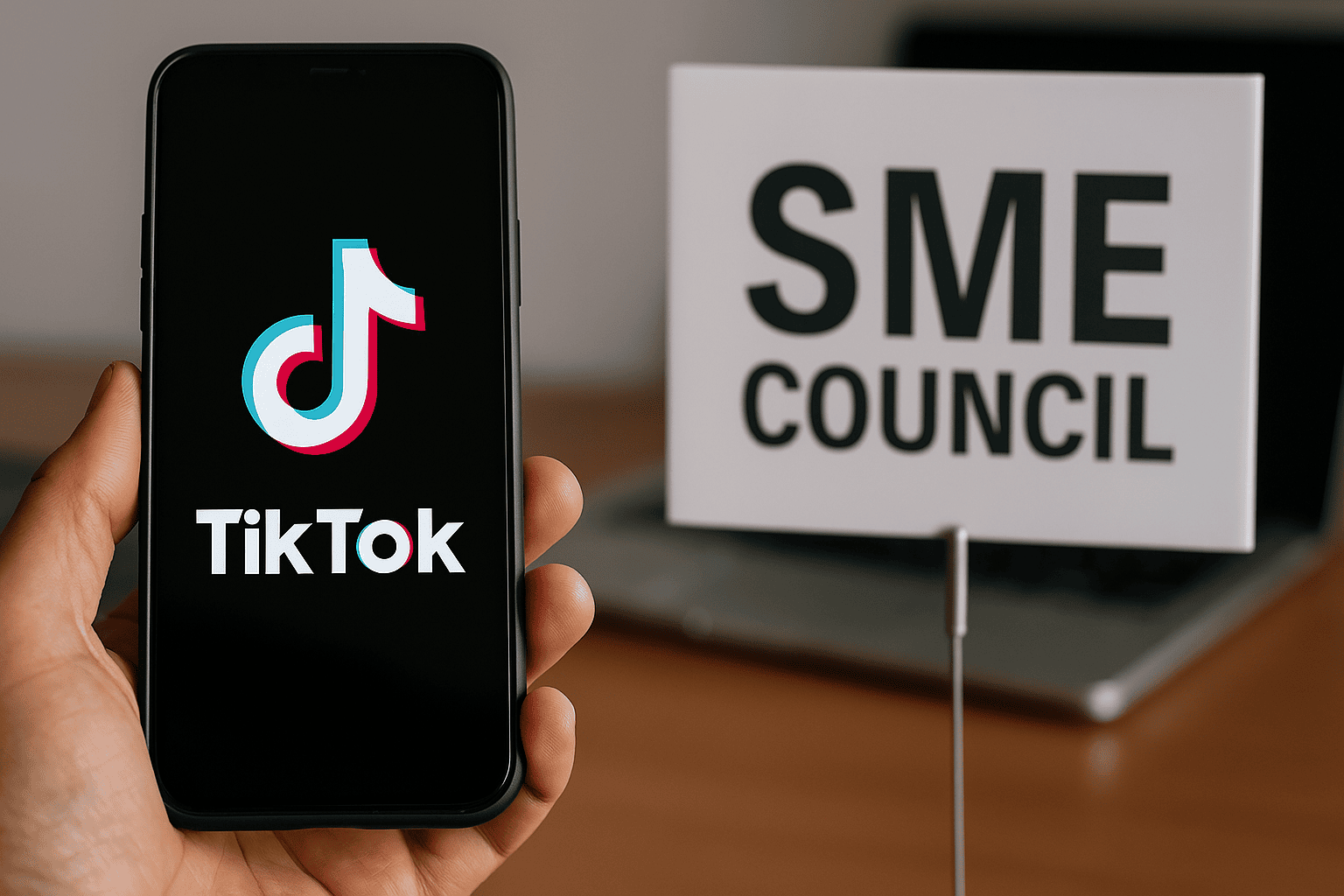TikTok Launches SME Council to Help Small Businesses Tap into Digital Power

TikTok has launched a new UK-based council aimed at supporting small and medium-sized businesses (SMEs), giving them a direct line into the platform’s leadership — and a chance to shape how TikTok works with advertisers at ground level.
The newly-formed SME Council is made up of 12 business owners from across the UK, handpicked to offer feedback, test tools, and advise TikTok on what small brands really need from one of the world’s fastest-growing platforms.
This isn’t just a PR stunt. It’s a smart move by a company that’s rapidly becoming more than just an entertainment app — especially for affiliate marketers, DTC founders, and small business owners looking to build brands on limited budgets.
Here’s what’s happening, and why it matters.
TikTok wants to be small business friendly
TikTok’s meteoric rise has been driven by creators and trends — but now, the company is pushing hard into commerce.
The SME Council is part of a wider effort to make the platform more accessible to businesses that don’t have huge teams or ad budgets. That includes simplifying ad tools, offering better training and support, and building features designed with small-scale e-commerce and service-based businesses in mind.
TikTok says the council will meet regularly to test new tools, review proposed changes, and share real-world challenges faced by business owners trying to grow through organic content, paid campaigns, or influencer collaborations.
If you’ve ever struggled with account support, unclear ad policies, or inconsistent results on TikTok, this council is trying to fix that.
Who’s In the room?
The 12 council members span a mix of industries — including food, fashion, fitness, and beauty. All of them are actively building brands on TikTok, and several use affiliate marketing or creator partnerships as part of their strategy.
One member, for instance, runs a skincare company that relies heavily on TikTok influencers to drive clicks to affiliate-enabled landing pages. Another runs a bakery that has grown a national customer base from viral videos and limited paid spend.
By including real entrepreneurs who are already using the platform to drive sales, TikTok is avoiding the trap of building tools in a vacuum. It’s putting the user — the small business owner — at the centre of its product roadmap.
Why this matters for affiliate marketers
This isn’t just good news for brands. It’s also a sign that TikTok is maturing as an affiliate platform.
In the past, affiliate marketers relied on Instagram and YouTube for creator-driven campaigns. TikTok felt less structured, more chaotic, and harder to track. But that’s changed.
With TikTok Shop rolling out more affiliate features, and with creators now able to tag products, earn commission, and link out more easily, the platform is becoming a serious player in the performance space.
The SME Council could accelerate this. If enough members ask for clearer affiliate tools — like better tracking, transparent reporting, or more integrations — TikTok is more likely to listen.
It also builds confidence. Marketers who were previously cautious about investing time or ad budget into TikTok may now see it as more stable, more predictable, and more responsive to feedback.
The bigger picture: TikTok vs Meta and Google
This move is part of a broader arms race between digital ad platforms to win over small business spend.
Meta has long dominated with Facebook and Instagram. Google has the search intent. But TikTok has something different: attention.
If you’re trying to sell a product, grow a newsletter, or build a community — TikTok offers reach that punches above its weight, especially for underdog brands with a story to tell.
But it’s also a noisy platform, and not every business knows how to succeed there. That’s why councils like this matter. They create a feedback loop between real users and platform decision-makers.
And in a world where algorithms change overnight, having your voice heard at the top table is no small thing.
What happens next?
Expect TikTok to release regular updates about the SME Council’s progress, including tool rollouts, new training resources, and case studies featuring council members.
There’s also talk of the council expanding in future — potentially with regional chapters or sector-specific versions such as a fashion council or a food business council.
For marketers, this means more chances to influence the platform, shape features, and stay ahead of what’s coming next.
Final thoughts
TikTok is growing up. What started as a trend-led, creator-first space is becoming a serious engine for product discovery and conversion — especially for small brands and affiliates willing to learn the rhythm of the platform.
The SME Council might seem like a niche initiative, but it’s a sign of intent. TikTok wants your business — and it’s starting to build the systems to earn it.
Whether you’re running paid ads, collaborating with creators, or building a product-led affiliate funnel, TikTok is no longer a wildcard. It’s becoming a channel you can plan around.
And if this council gets it right, it could make the platform even more useful for the people who need it most.






